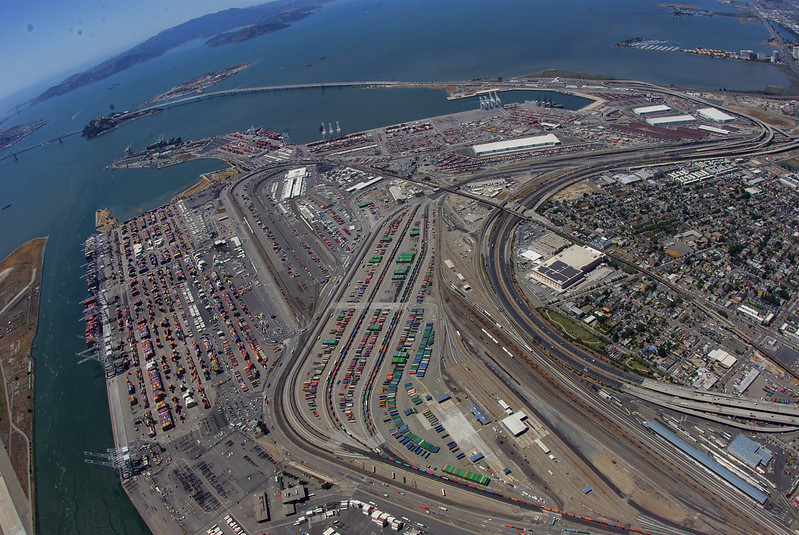Transforming Maritime Operations: Port of Oakland's $7 Million Hydrogen Fuel Project
Key Ideas
- The U.S. DOE has granted $2.5 million to the Port of Oakland for fuel cell technology development, part of a $7 million project to achieve zero emissions in maritime operations.
- Key stakeholders like Alameda CTC, TraPac, and Hyster-Yale Group are also contributing to the funding of the project, with Alameda CTC providing up to $2 million.
- The project aims to commercialize zero-emissions container handling equipment, develop a zero-emission hydrogen refueler, and supply fuel to hydrogen vehicles, enhancing operational efficiency at the port.
- Port of Oakland's Executive Director expressed gratitude for being chosen for this hydrogen project, highlighting the port's commitment to becoming a zero-emissions port and leading in clean energy technology for transportation.
The U.S. Department of Energy (DOE) has allocated $2.5 million to the Port of Oakland as part of the Biden-Harris administration's infrastructure efforts. This grant aims to boost the use of hydrogen fuel at the port by developing and demonstrating advances in fuel cell technology. The total project cost is estimated to be over $7 million, with contributions from key stakeholders such as the Alameda County Transportation Commission (Alameda CTC), TraPac, and Hyster-Yale Group. These organizations will provide local project funding under existing cost-sharing agreements. The project focuses on transforming all aspects of maritime operations at the Port of Oakland to achieve zero emissions. By developing and demonstrating two zero-emissions fuel cell electric top loaders (FCETLs) and a zero-emission hydrogen wet-hose mobile refueler (WHMR), the port aims to advance the commercialization of zero-emissions container handling equipment and fill a key technology gap. The project also includes supplying fuel to hydrogen vehicles in ports and other industries to maximize operational uptime. The FCETLs and WHMR will be tested in regular container handling service at the port, with the demonstration project expected to span four years. Port of Oakland's Executive Director, Danny Wan, expressed the port's dedication to becoming a zero-emissions port and its gratitude for being selected for this innovative clean energy project.
